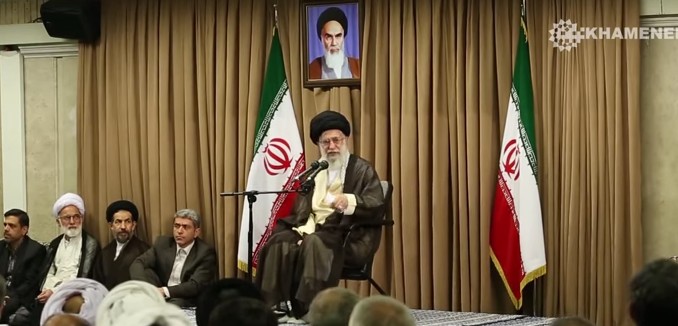Criticizing the emerging nuclear deal between the P5+1 nations and Iran, Andrew Bowen, a senior fellow at the Center for the National Interest, argued that the agreement will come at the “expense of both Washington’s allies and the U.S.’ long-term strategic interests in the Middle East” in an analysis published Sunday on Al-Arabiya.
The final agreement, likely to be reached next week in Geneva, is a deeply, flawed deal. Instead of negotiating consistently from a position of strength, the U.S.’s repeated concessions have empowered Iran to gain concessions that the White House in the past said were deal breakers. Taking advantage of Washington’s use of setting artificial negotiating deadlines, Tehran has repeatedly gone on the offense drawing these negotiations into the final hours to see whether the P5+1 would blink first. In most cases, Washington blinks and the terms of the agreement are further watered down.
At the same time, the U.S. missed repeated opportunities to try to deter Iran’s broader regional behavior. Believing that such issues would derail the talks or extend them longer, Obama has chosen to isolate the talks from these complexities and has allowed Iran to pursue its regional goals without any real threat of sanction, diplomatic pressure, or credible military deterrence.
Once such an agreement is signed, Obama will effectively remove any economic ability to constrain Iran’s behavior in the region and at the same time, sign off on an agreement that will allow Iran to achieve a nuclear weapon in over a decade, if Khamenei’s regime doesn’t cheat on the terms before. As this negotiating process has shown, not once has Tehran shown any real substantive interest in a long-term nuclear free Gulf, better relations with its neighbors, or critically, improving relations with the U.S.
Bowen argues that the deal, which strengthens Iran and does nothing to counter its destabilizing actions in the Middle East, will allow Tehran to “create an arc of instability in the Middle East, which has long-term implications for the stability of the region, Europe, and the wider Indian Ocean, and for global energy markets.”
Bowen’s warning echos those of other experts, including David Rothkopf, editor of Foreign Policy magazine, who previously said that “restoring cash flows and assets to Iran, as well as giving the country greater international standing, clearly exacerbates” the threat posed by Iran’s “35-year campaign of regional meddling.” Former secretaries of state, Henry Kissinger and George Shultz, argued that a deal that would lift sanctions but not address Iran’s destabilizing behavior would “[risk] empowering Iran’s hegemonic efforts.” Former State Department official, Aaron David Miller, similarly wrote that a deal that doesn’t address Iran’s destabilizing behavior would that one crisis may have been averted for now but would that there would be “bigger one down the road.” Mehdi Khalaji, Soner Cagaptay and James Jeffrey, all fellows at the Washington Institute for Near East Policy, wrote that a nuclear deal would prompt Iran to abandon its “imperial ambition” in the Middle East.
[Photo: Khamenei.ir / YouTube ]




